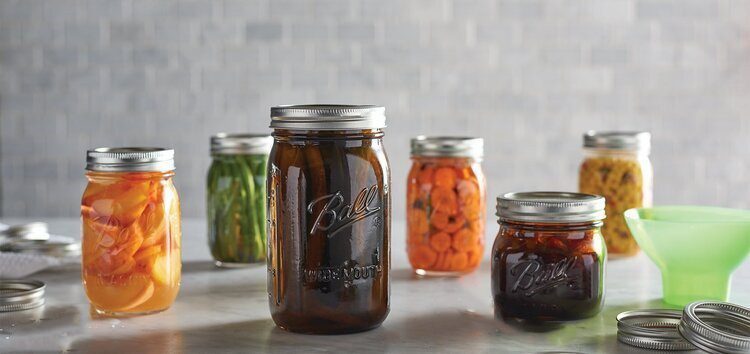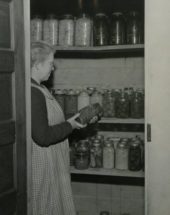
Being a Master Food Preserver is an excellent way to learn, as well as stay current on the latest preserving methods and issues in food safety.
– Faith Isreal, Clemson Extension food systems and safety agent
Food preservation has been practiced for generations and now Clemson Extension agents want to help South Carolina residents learn more about this form of food security.

The Clemson University Cooperative Extension Service Food Systems and Safety team is offering a South Carolina Master Food Preserver certification program. The program is divided in two parts and costs $300. Class size is limited to 40. To register, go to https://bit.ly/CES_MasterPreserver. A criminal background check is required of all applicants.
The first segment is an 8-week online study that begins October 17.
“Participating in this program is a great way for individuals to contribute to their communities,” said Faith Isreal, Clemson Extension food systems and safety agent. “Becoming a Master Food Preserver will give people opportunities to meet and work with passionate gardeners, hobbyists and food enthusiasts. Being a Master Food Preserver also is an excellent way to learn, as well as stay current on the latest preserving methods and issues in food safety.”
Topics for the first segment include:
- Basics to preserving and food safety.
- Canning with boiling water, steam and pressure.
- Pickling.
- Dehydrating fruits and vegetables.
- Freezing foods.
- Fermenting.
The second segment begins with a 2-day intensive training Jan. 19-20, 2023. During the second segment, participants will be required to donate at least 40 hours of service projects to complete the program and receive the title of “South Carolina Master Food Preserver.” Volunteer work may vary by county. Service projects include activities such as assisting with food preservation workshops, answering questions from the public, testing pressure canners, hosting canning demonstrations and more.
Following initial certification, 20 hours of educational service and 10 hours of continuing education each year are required.
Contact the local Clemson Extension Food Systems and Safety agent for specific requirements. Both segments must be completed for a person to become a South Carolina Master Food Preserver.

A serving of food preservation history
Food preservation is an ancient practice. In the Historical Origins of Food Preservation, Brian Nummer writes, “Food by its nature begins to spoil the moment it is harvested. Food preservation enabled ancient man to make roots, live in one place and form a community. He no longer had to consume the kill or harvest immediately but could preserve some for later use. Each culture preserved their local food sources using the same basic methods of food preservation.”

Cooperative Extension Service agents have a long history of providing the public with science-based information about food preservation. A 1917 Farmers’ Bulletin, Preservation of Vegetables by Fermenting and Salting, from the United States Department of Agriculture (USDA), was used to show people “…practical methods of conserving surplus food…and to explain how the preserved products can best be prepared for table use.”
Families gathered at community food preservation centers “…in a neighborly way to can, brine, preserve or store an oversupply for a coming need…” An excerpt from the 1941 USDA Publication 472, “Community Food Preservation Centers,” shows community leaders believed preserving food during peaceful years was “…one of this country’s thrifty means of securing an all-the-year supply of good food.” Food preservation had been proven as “a good way of tiding over droughts and depressions and meeting such food emergencies as are caused by floods and hurricanes.”
With World War II came a new chapter in the food preservation story. Leaders called on the “rallying of all Americans to conserve the Nation-building food supply as a vital part of our national defense.” Agricultural agencies located food surpluses, while nutritional committees planned how these centers would operate, as well as engage in “the upbuilding of national strength through better use of food supplies.”
Clemson Extension agents continue this practice by offering educational opportunities such as earning a Master Food Preserver certificate. Information also is available at local Clemson Cooperative Extension Service offices, or online at https://www.clemson.edu/extension/.
-END-
Get in touch and we will connect you with the author or another expert.
Or email us at news@clemson.edu
